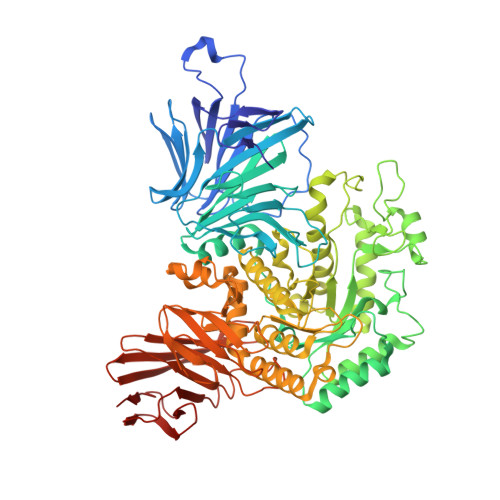Expanding the Thioglycoligase Strategy to the Synthesis of alpha-linked Thioglycosides Allows Structural Investigation of the Parent Enzyme/Substrate Complex
Kim, Y.-W., Lovering, A.L., Chen, H., Kantner, T., McIntosh, L.P., Strynadka, N.C.J., Withers, S.G.(2006) J Am Chem Soc 128: 2202-2203
- PubMed: 16478160
- DOI: https://doi.org/10.1021/ja057904a
- Primary Citation of Related Structures:
2F2H - PubMed Abstract:
For the first time, the thioglycoligase strategy has been successfully applied to alpha-glycosidases. The alpha-thioglycoligases derived from the family 31 glycosidases, alpha-xylosidase from E. coli (YicI) and alpha-glucosidase from Sulfolobus solfataricus, catalyze thioglycoligase reactions using alpha-glycosyl fluorides and deoxythioglycosides as donors and acceptors, respectively, in yields up to 86%. In addition, we describe the Michaelis complex of YicI using one of the thioglycosides as a nonhydrolyzable substrate analogue and discuss the structural insights this yields into the specificity and mechanism of family 31 alpha-glycosidases and the molecular basis of an associated genetic disease.
- Department of Chemistry, University of British Columbia, 2036 Main Mall, Vancouver, British Columbia V6T 1Z1, Canada.
Organizational Affiliation:




















